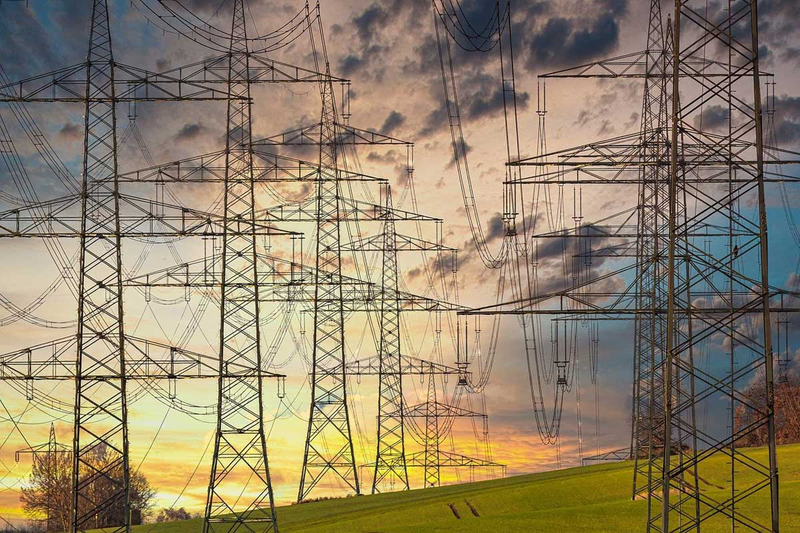The Paradox of Energy Networks: Stability and Risk

The phenomenon of negative electricity prices has become a reality across Europe, and with the rapid expansion of solar installations lacking sufficient storage capacity, this phenomenon is emerging everywhere.
The Dual Nature of Energy Interconnectivity
As energy networks grow more interconnected, grid connections extend beyond technical concerns, shaping cooperation and economic stability while ensuring electricity and fuel distribution. However, they also introduce technical, political, and military vulnerabilities within critical infrastructure. Renewable energy integration challenges grid stability. Unlike fossil fuel or nuclear plants that provide steady baseload power, solar and wind fluctuate, demanding advanced storage and balancing mechanisms. Transmission networks face cybersecurity risks, with hostile actors capable of disrupting operations. Further, countries controlling major energy networks are shaping supply access, pricing, and infrastructure investments, often through pipeline diplomacy, where energy transit agreements either strengthen alliances or spark disputes.
The Predictable Iberian Disruption
From an energy standpoint, the Iberian Peninsula operates almost as an isolated energy system within the EU. Spain’s grid heavily relies on solar photovoltaics, solar thermal, and wind power, lacking sufficient storage infrastructure (such as batteries) or stabilization mechanisms (such as backup generators). The blackout occurred suddenly, without warning, and was not linked to extreme weather or external factors. The EU’s current energy interconnections cannot guarantee supply security unless supported by strong thermal generators capable of preventing similar incidents. The widespread integration of renewable energy sources into European grids may increase their fragility, raising the risk of instability. Before the EU fully implements its Net-Zero policy, substantial investments are needed to maintain and expand networks, ensuring their reliability and preventing future disruptions.
Geopolitics of Energy Networks
There is a broader geopolitical trend, as multiple nations reassess their energy strategies. Resilience and security in energy networks have become critical priorities, especially during the EU’s deepening energy crisis. Interdependence among nations shapes modern energy geopolitics, making interconnections vital for stability and supply adequacy. The collapse of the Iberian grid highlighted the existence of “isolated energy islands” within Europe, such as Cyprus, which remains disconnected from the EU’s mainland grid, as well as Greece. This underscores the urgent need for investments in grid expansion, maintenance, and the creation of new interconnections to enhance energy security and reduce the risk of power disruptions.
Regarding Northern Europe, the European Network of Transmission System Operators for Electricity recently published a study conducted under EU regulation by transmission system operators from Central Europe and the Nordic Zone. The study aimed to maximize economic efficiency and cross-zone trading opportunities while maintaining supply security. However, as noted in earlier analyses, interconnections in Southeastern Europe remain pending for the GIS and GREGY power interconnection projects between Israel, Cyprus, and Greece and that between Egypt and Greece.
Turkey is advancing a new power interconnection between the EU and the Caucasus, leveraging its geographic and political advantages in the Southeastern Mediterranean. A four-party agreement on electricity transmission at Europe’s southeastern borders was signed in Baku. The energy ministries of Bulgaria, Turkey, Georgia, and Azerbaijan agreed to promote this commercial electricity project, known as the “Green Electricity Transmission and Trade Project.” With the signing of a memorandum of understanding in early April, the parties committed to launch an electricity corridor linking the Caspian Sea to the Balkans of the European Union. This initiative aligns with broader EU efforts to diversify energy sources and strengthen regional energy security. Turkey’s move presents an alternative strategy to the energy projects of its competitors—Greece, Israel, and Cyprus. Interestingly, the EU recently expressed support for the GREGY project while deprioritizing GIS.
Across the Atlantic, Canada is moving away from energy interdependence with the United States, backed by broad political consensus. With the third-largest proven oil reserves after Venezuela and Saudi Arabia, its oil industry is quietly experiencing sustained growth, a trend that supports greater autonomy, energy independence, and supply security. The country is also exploring its potential as an energy superpower through LNG exports via the Pacific Ocean, the expansion of hydroelectric plants along the eastern coast, and the development of critical minerals both on land and offshore. China has developed technologies capable of intervening in subsea cables, including tools that can sever cables at depths of 4,000 meters, far beyond the operational range of most existing infrastructure. These advancements underscore the growing role of maritime infrastructure in global energy geopolitics, communications, and security.
Modern Diplomacy - Energy - May 6 2025
https://moderndiplomacy.eu/2025/05/06/the-paradox-of-energy-networks-stability-and-risk/